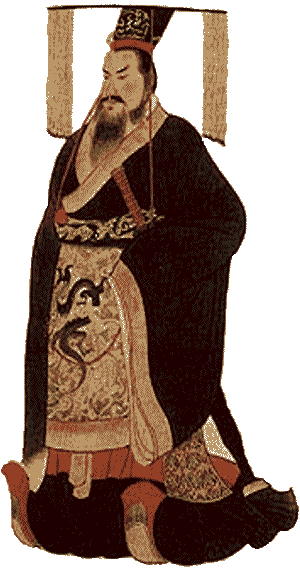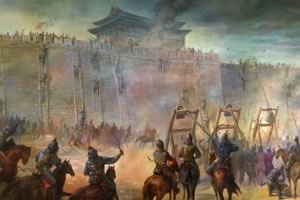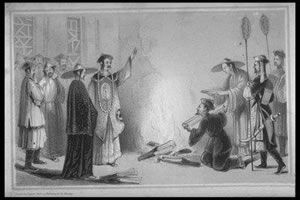Confucius taught that people are good, but about 250 years after the death of the great Chinese sage, a group of scholars known as the Legalists brought in a different view. The Legalists believed that humankind was evil and that, unless controlled, people would be concerned only with their own interests. The Legalists believed that society functioned best through strong government control and absolute obedience to authority, so they created laws that ordered strict punishments and rewards for behavior.
Confucius believed in virtue and natural order, but the Legalists believed that all human activity should be directed toward increasing the power of the ruler and the government. The Legalists held power by suppressing anyone who disagreed with them.
China had not been a unified nation for hundreds of years when the Legalists came to power. During an era later called the Age of Warring States, local rulers controlled many small kingdoms.
The ruler of the Qin state embraced the Legalist philosophy. The Qin united China by about 214BCE by conquering most rival kingdoms. The first Ch’in ruler of a united China took the title Shih Huang-ti, which means August Lord or First Emperor.

Shih-Huang-ti
Shih Huang-ti (260–210BCE), was the title of the first ruler of China’s Ch’in Dynasty. His title means August Ruler or First Emperor. The title emperor (huangdi) would continue to be used by Chinese rulers for the next two thousand years.
Shih Huang-ti and the Legalists banned all books on history and classic Chinese literature that glorified past rulers. The First Emperor ordered all “non-essential” books collected and burned. He allowed only books on agriculture, medicine, and pharmacy. Books written about Confucius and his philosophy were destroyed. During this Shih Huang-ti’s reign, hundreds of scholars were put to death—many of them being buried alive.
The Legalists lost power shortly after the death of the First Emperor. Succeeding rulers ended laws that destroyed books. Confucius’ teaching survived the Burning of the Books because his philosophy was often handed down orally from master to student. Thus, it was possible to reconstruct the texts from memory and the few surviving manuscripts.

China_Age_of_Warring_States
Shih Huang-ti unified China through force in 221BCE after centuries of warfare known as the Age of Warring States.
Resources
Download this lesson as Microsoft Word file or as an Adobe Acrobat file.
View a Powerpoint presentation of this lesson.
Listen as Mr. Dowling reads this lesson.
Lexile Measure 1190L
Mean Sentence Length 17.78
Mean Log Word Frequency 3.29
Word Count 320
Mr. Donn has an excellent website that includes a section on China.

China_Burning_of_the_Books
In 213BCE, Shih Huang-ti ruled that books that disagreed with the philosophy of the Legalists were to be burned. The Legalists particularly singled out Confucian texts. Only one copy of each book was allowed to be kept in the Chinese State Library. The Legalists lost power shortly when Shih Huang-ti died, and shortly after, the practice of burning books ended.


